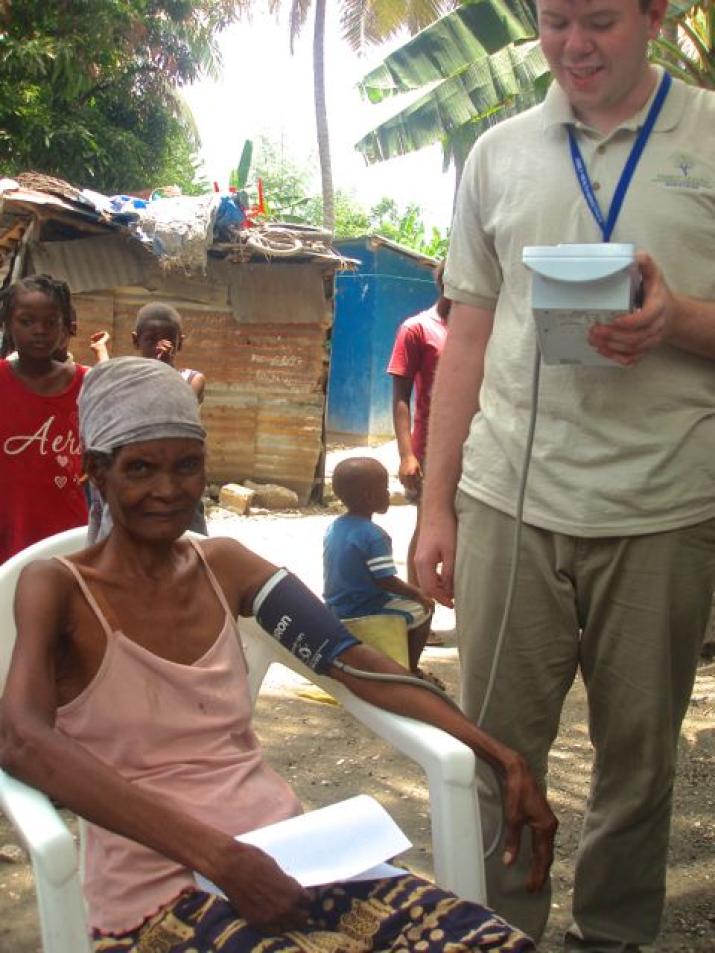
Zach taking the blood pressure of a woman in the communal area outside of her house.
Published June 16, 2014, last updated on October 5, 2017 under Voices of DGHI
By Garland Austin
After the initial whirlwind that encompassed our first week of work in Haiti, it seems that this past week can be best described as non-stop learning. We have gradually settled into our daily routine and worked out several minor kinks in our surveys, but in order to make this experience worth more than mere data collection, we must also strive to learn the Haitian way of life.
Perhaps most notably, we are learning that Haitians are very hospitable, community-oriented people. In our hypertension study, we walk into local neighborhoods in Leogane unannounced and expect people to welcome us into their homes and often even bedrooms for a doppler reading. Honestly, I was nervous about this data collection method. With my American cultural lenses firmly in place, I imagined being turned away for wasting people’s time, being an uninvited intruder of personal privacy, or serving as a desensitized outsider attempting to extract information from “subjects.” Instead, we have encountered a culture that has welcomed our presence at every home, that always scavenges to find chairs for us before themselves, and that expresses extreme gratitude for our working to help their community. We are learning that this seemingly uncommon form of hospitality is instead the norm in a beautiful culture that spends every day socializing with its neighbors and embracing the collective over the individual.
Additionally, we are discovering how enthusiastic Haitians are to learn. This first became evident when our interpreter, Berlyn, began to ask us daily questions such as ‘what is the difference between the English words might and could?’ or ‘can you please write down the lyrics to America’s National Anthem?’ Our community interactions have further strengthened this finding. In the HPV vaccine acceptability survey, if a woman ever responds that she is not sure what causes cervical cancer, she always follows up with, ‘but I would like for you to tell me.’ In fact, there have been so many questions regarding the intricacies of HPV and cervical cancer that we have decided to begin handing out information sheets to our more curious participants. Overall, this keenness toward learning has been encouraging, as it is easy to see that the Leogane community will embrace rather than dismiss future health campaigns.
Lastly, we have begun the never-ending process of learning how to connect personally with our Haitian neighbors. While we are fortunate enough to have two very talented interpreters working with us, to communicate indirectly through an interpreter would be a missed opportunity to connect with a truly fascinating community. Thus, we have been taking Haitian Kreyol lessons twice a week and study regularly with the hopes of building our vocabulary and conversational skills. We have a long way to go with our speaking and comprehension; however, we have seen the immediate benefits of learning Kreyole phrases commonly encountered in our surveys. By greeting and relaying key information directly to our participants in Kreyole, we hope that we can be seen as community partners rather than impersonal, foreign experimenters.
While there will always be more to learn about and from our Haitian friends, and while we have surely just broken the surface these past two weeks, through learning, we can begin to break away from our cultural predispositions.


